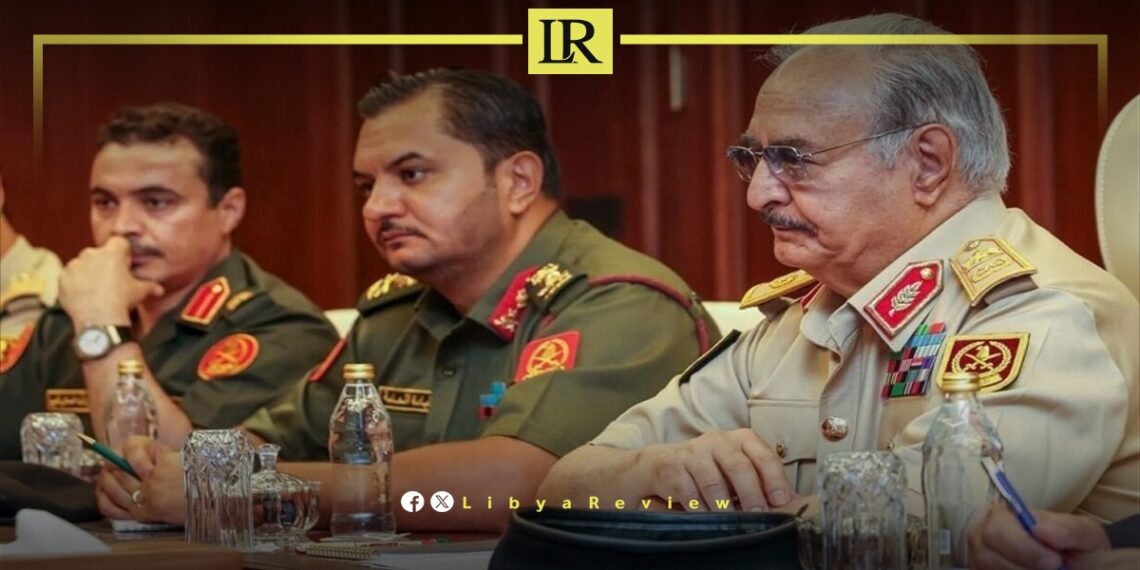In a recent meeting, Libyan Commander-in-Chief Field Marshal Khalifa Haftar underscored the importance of respecting the Central Bank of Libya and cautioned against illegal interference in its operations. The meeting with Stephanie Khoury, the acting head of the United Nations Support Mission in Libya (UNSMIL), focused on the current political landscape in Libya and the ongoing crisis affecting the Central Bank.
Haftar reiterated his stance on protecting the integrity of the Central Bank of Libya, emphasizing that any actions undermining the institution would not be tolerated. He highlighted the need to respect legitimate authorities responsible for key positions, including the Governor of the Central Bank, as outlined by the political agreement.
The meeting also addressed the broader economic, security, and political implications of the Central Bank’s crisis. Haftar held the non-legitimate political factions accountable for the hardships faced by the Libyan people.
In response, Stephanie Khoury reaffirmed UNSMIL’s commitment to supporting efforts to uphold the Central Bank’s status and stressed the importance of reaching consensus between the House of Representatives and the High Council of State on the appointment of the Governor.
Both parties agreed to continue consultations in the coming period to address the ongoing issues and seek resolutions.
Libya has been in chaos since a NATO-backed uprising toppled longtime leader Muammar Gaddafi in 2011. The county has for years been split between rival administrations.
Libya’s economy, heavily reliant on oil, has suffered due to the ongoing conflict. The instability has led to fluctuations in oil production and prices, impacting the global oil market and Libya’s economy.
The conflict has led to a significant humanitarian crisis in Libya, with thousands of people killed, and many more displaced. Migrants and refugees using Libya as a transit point to Europe have also faced dire conditions.
The planned elections for December 2021 were delayed due to disagreements over election laws and the eligibility of certain candidates. This delay has raised concerns about the feasibility of a peaceful political transition.
Despite the ceasefire, security remains a significant concern with sporadic fighting and the presence of mercenaries and foreign fighters. The unification of the military and the removal of foreign forces are crucial challenges.


